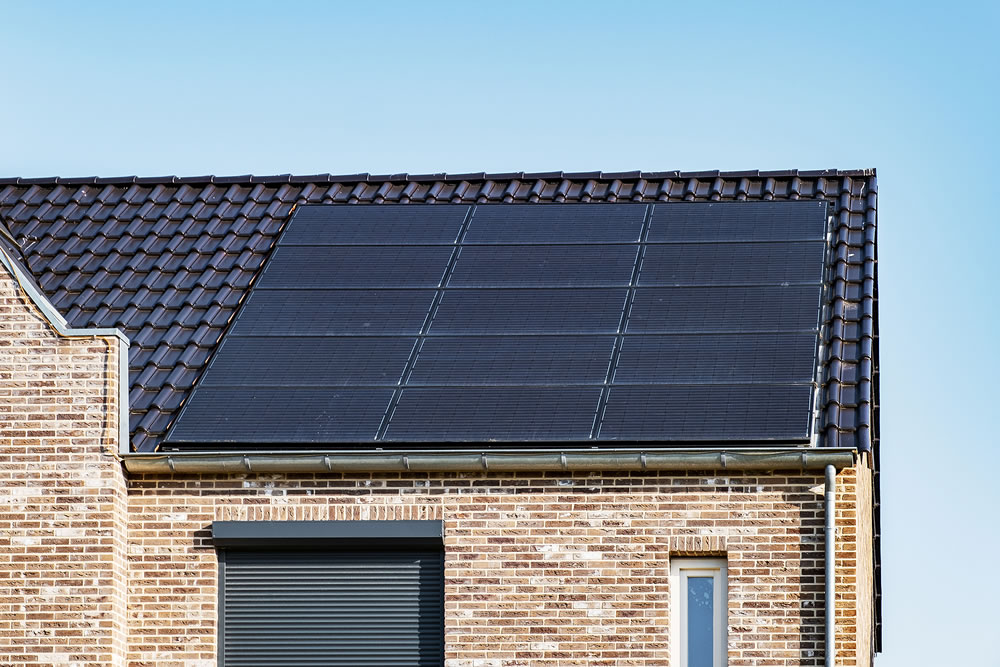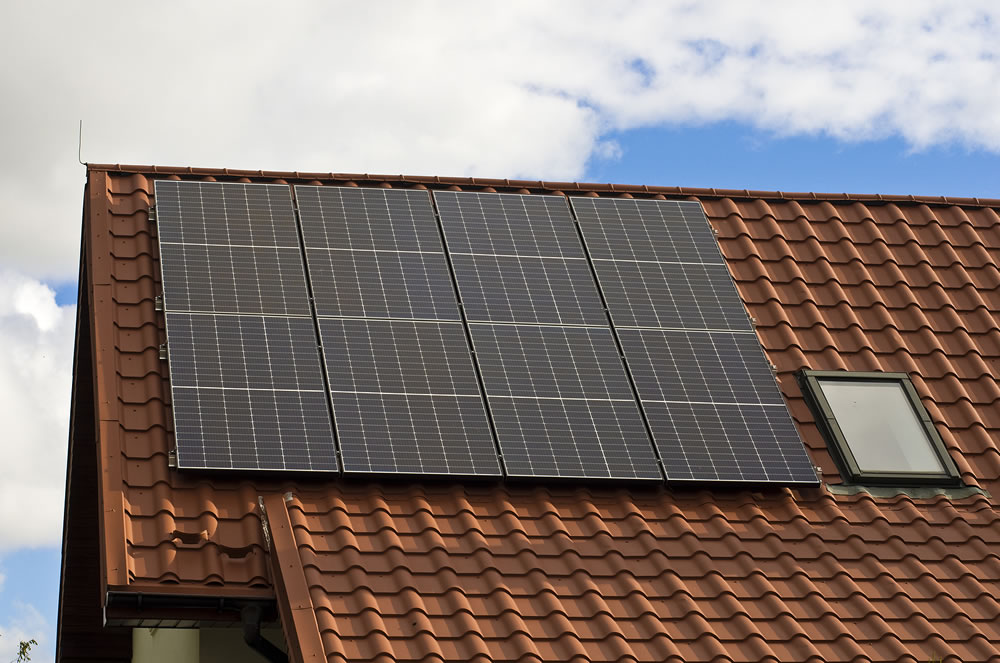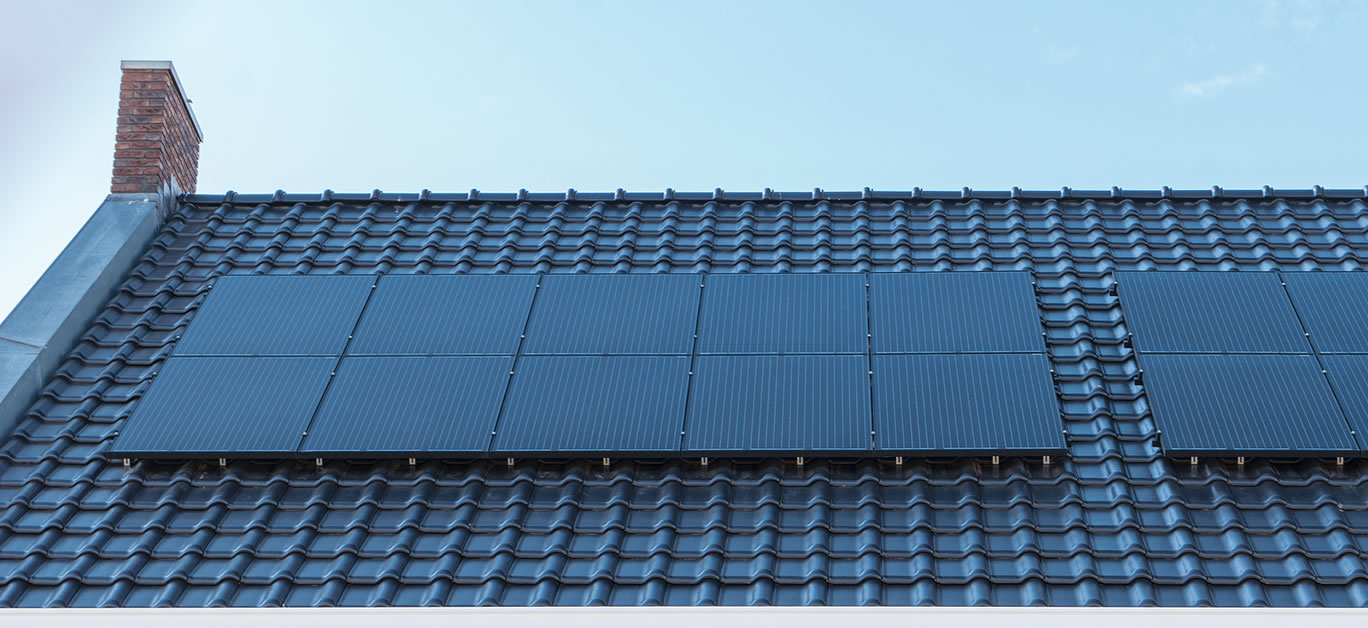Solar panels have been undergoing a dramatic surge in popularity in recent years, with climate change a hot topic and the growing focus on the plight of our planet’s future forcing us all to think a little more deeply about how we choose to live our lives. Today, we’re more conscious of our environmental impact than ever, with many of us seeking out ways to become more sustainable. One of the easiest ways to do so in our homes is to reduce our carbon footprints by switching to renewable energy, so it’s perhaps unsurprising that more of us are turning to solar panels in place of traditional, fossil fuel-based energy sources.
Generally speaking, solar panels tend to be dark blue, rectangular structures placed on the roof of a home, and work by generating electricity from sunlight. You may also see them on bridges, sidewalks, and many commercial buildings around you. These panels have evolved since their inception, at least in terms of efficiency – however, physically, there haven’t been any dramatic changes in the last few decades besides a few tweaks in shape and size. That is, until now.
New and improved black solar panels have been trending in the renewable energy industry of late and are becoming an increasingly common choice for new installations. Showcasing a long overdue change in colour palette that gives panels a sleeker, more sophisticated look, black solar panels have captured the attention of homeowners and investors alike who are looking for more aesthetically pleasing sustainable energy solutions from social.energy.
What is black silicon?
Imagine wearing an all-black outfit on a hot summer’s day, and a lighter outfit the next day. You’ll experience first-hand how the darker outfit attracts more heat than a lighter one – and this same logic applies to solar panels. Black silicon gets its colour through an unconventional etching process in which high-energy lasers, oxidisers, and acids create black nanotextures on the silicon wafer’s surface, and allows them to attract more heat from the sun on sunny days, thus making them more efficient in the long-run.

What are black solar panels?
Many people mistake black solar panels for thin-film panels due to their colour. Black panels are made from monocrystalline silicon crystals and are characterised by a smooth, pure black appearance. Because they’re relatively new, their market share is tiny due to their relatively higher price tag and the fact that many solar consumers are fundamentally opposed to change – but that could all be about to shift.
Although black and blue solar panels almost share the same manufacturing process, black panels require more energy and leave behind a significant amount of pure silicon wastage during production. However, this costlier process gives them a more uniform structure, which offers several benefits, and they tend to perform more efficiently, too – which for many, is sufficient pay-off.
Benefits of black solar panels
Better curb appeal
A growing number of modern consumers are willing to switch to solar energy and reap its benefits, but not at the expense of their property’s curb appeal. While conventional panels aren’t necessarily unattractive, many people believe their lack of uniformity and contrasting colours result in an asymmetrical appearance. Black is a more neutral colour and allows people to take advantage of solar energy’s benefits while still having a head-turning office, home, or structure, especially if they include a black back sheet or frame.
More energy efficient
The more uniform silicon alignment in black solar panels makes them more energy-efficient than their counterparts. Using fewer panels, you can generate the same amount of energy, making them a better option for saving space.
Absorb more light and heat
Black panels absorb more light than blue ones, meaning they can generate more power for your home or business in a comparable period of time. Although this often results in more heat generation, which can disrupt efficiency, they are recommended for colder regions with fewer sunlight hours, as they can perform well in low-light conditions.

Pre-existing anti-reflective coating
Black silicon does not require an anti-reflective coating, meaning it can be manufactured at a lower cost than panels that do require it or serve as a price equaliser. By eliminating the time required for this process, manufacturers can increase production rates, too.
More power in warmer weather
Black monocrystalline solar panels are superior to their alternative counterparts in terms of output during warm weather. As the temperature rises, all panels begin to degrade and become less efficient – however, the efficiency degradation is less severe in black panels than in blue panels. Due to this, they also last longer – exceeding the industry standard of 20-25 years.
The bottom line
Every home or business owner wants their property to look its best. However, many feel that they’re compromising on curb appeal by opting for standard blue solar panels, especially if they can’t find a discreet location on their roof to install them. Black solar panels, in contrast, can upgrade a property’s look by giving it a more complementary colour palette – and with a raft of other benefits to offer, too, they might just be the solution you’re looking for.





















